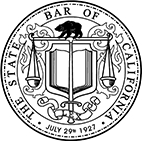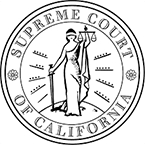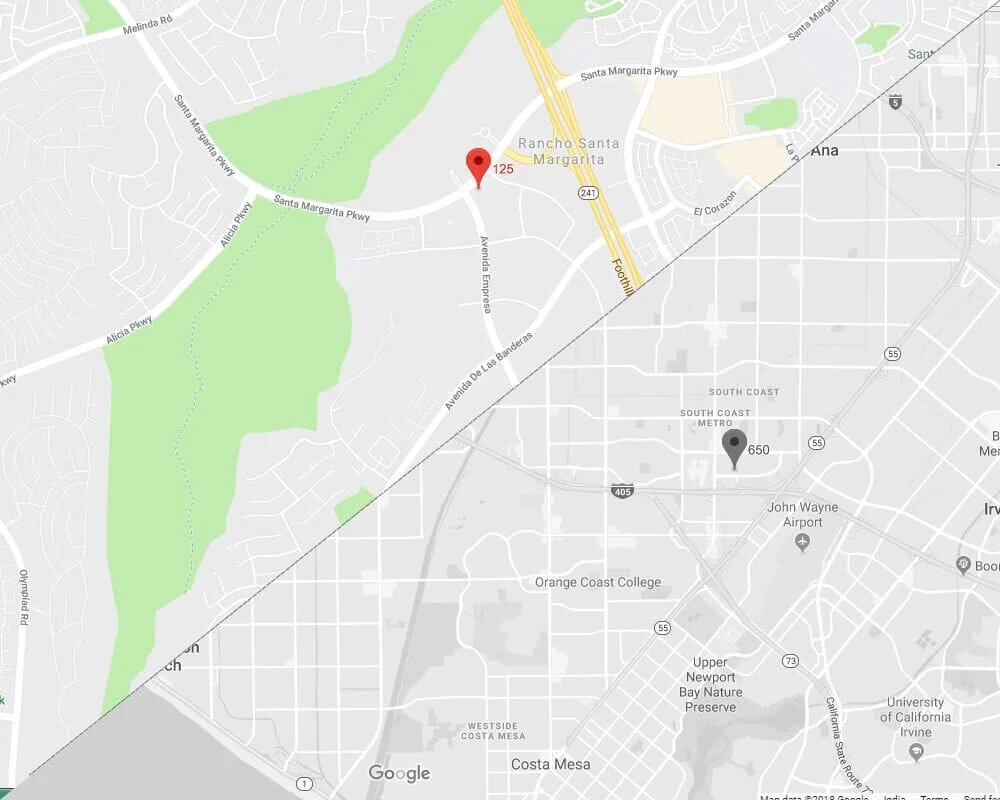Orange County DUI Attorney

Orange County DUI Lawyer
Driving under the influence (DUI) of alcohol or drugs is extremely dangerous for the intoxicated driver, their passengers, and all other motorists near them on the road. DUI is also illegal in every state, and each state has unique laws pertaining to DUI offenses, their penalties, and the consequences for multiple DUI convictions within short periods.
If you or a loved one has recently been arrested for DUI, a Orange County DUI attorney is the best asset to have as you fight the charges against you and work to minimize your penalty. You will also need reliable defense counsel if you have been wrongfully charged with a DUI offense you did not commit.
The attorneys at Brown & Stedman LLP have decades of professional experience helping clients throughout the Orange County, CA, area through complex criminal cases. Our defense team believes in client-focused legal counsel in every case we accept.
Every case is unique; therefore, every defendant needs a personalized legal strategy to overcome the charges against them or minimize their penalties. Our firm can provide the comprehensive and compassionate defense representation you need when your future is at stake after a DUI arrest in Orange County.

Why You Need a Orange County DUI Attorney
Every American citizen has constitutional rights that come into play upon arrest for any crime. The first is the Fifth Amendment’s protection against self-incrimination. Essentially, this amendment states that no person shall be forced to act as a witness against themselves in a criminal case and provides the right to remain silent upon arrest.
If the police place you under arrest for DUI in California, your best option is to comply with their directions and stay silent. Even if you know that you did nothing wrong and feel compelled to protest the arrest, say nothing and follow directions. Anything you say could potentially work against you in court.
The police have a legal obligation to read you your Miranda rights when you are placed under arrest. They will inform you that you have the right to remain silent and that “anything you say can and will be held against you in a court of law.” You must understand the seriousness of this statement and take full advantage of your right to remain silent.
Facing a DUI Charge in Orange County? Here’s What You Need to Know About California DUI Laws
- DUI offenses in California are prosecuted under Vehicle Code 23152. To convict, the prosecution must prove the offender had a blood alcohol concentration (BAC) of 0.08% or higher.
- To measure BAC, arresting officers may request a blood or breath test. While chemical tests are not mandatory, refusing to take one results in a mandatory one-year driver’s license suspension. Additionally, this refusal can be used as evidence against you in court.
- If chemical tests are submitted, it’s crucial to request a sample. DUI attorneys can retest these samples to uncover potential errors or inconsistencies that may strengthen your defense.
- After a DUI arrest, your driver’s license will be confiscated, and you’ll receive a temporary license until a DMV hearing is scheduled. This hearing determines the status of your license. Drivers have 10 days to request a DMV hearing, and failing to do so results in license suspension within 30 days. Driving with a suspended license is a separate crime with additional penalties.
If you’ve been charged with a DUI in Orange County, consult with our experienced DUI defense attorneys at Brown & Stedman LLP to take timely action and protect your future.
You Have the Right to Representation
The second constitutional right that will come into play after an arrest for DUI in California is the Sixth Amendment right to legal counsel. Every American citizen has the right to defense representation when charged with a crime, even if they cannot afford to hire a private defense lawyer. If a defendant cannot hire private defense counsel, or if the defendant simply does not wish to pay for an attorney, the court can appoint a public defender to represent the defendant in their criminal trial.
Most public defenders in Orange County, CA, are hardworking, experienced defense lawyers who do the best they can for every client. However, they have inherently demanding jobs that prevent them from providing much individual attention to any case. A public defender may only be able to devote an hour or so per day to working on your defense. Despite their best intentions, even the best public defenders can only do so much for their clients.
If you have the means to do so, hiring a private Orange County DUI attorney can ensure a higher level of defense representation. When you choose Brown & Stedman LLP to represent you in a DUI case, we will work closely with you to help you determine your best options for defense, guide you through your case proceedings efficiently, and help you minimize your sentence as much as possible.
How Does California Prosecute DUI Offenses?
Police in California use a blood alcohol concentration (BAC) system of measurement to determine whether a driver is under the influence of alcohol. After a lawful arrest for DUI, the suspect must submit to chemical testing for DUI under California’s implied consent law. It is important to note that this law requires a suspect to submit to chemical testing for DUI after arrest, not before, and there is no legal obligation for any driver to submit to a preliminary alcohol screening before arrest.
The only exceptions to this would be drivers under 21 and drivers on probation for prior DUI convictions. These drivers are legally required to submit to preliminary alcohol screenings via breath analysis machines. If they report a BAC level over a certain amount, they will be arrested for DUI.
Many California drivers mistakenly believe that they must submit to a preliminary alcohol screening if a police officer asks them to do so. If the police officer conducting the stop does not have enough evidence to conduct a DUI arrest, they may attempt to convince the driver to submit to a preliminary alcohol screening.
This has led to many people unintentionally incriminating themselves due to a lack of awareness of the laws and their rights. Unless you are under the age of 21 or on probation for a prior DUI conviction, you can refuse a preliminary alcohol screening. A lawful refusal to submit to a preliminary alcohol screening cannot be used against you to prove your guilt.
You do not, however, have the right to refuse a chemical test for DUI after you have been arrested. If you do refuse this test, the California DMV will automatically suspend your driver’s license, and you will face a license suspension period even if you are found not guilty of the offense in question. If you are convicted, your refusal to submit to a lawful chemical test for DUI will lead to enhanced penalties.
The police will require a driver to submit to blood testing for DUI if they have a warrant for the test, if they have reasonable suspicion that the driver has committed a felony DUI, or if the driver shows clear signs of driving under the influence of drugs (DUID).
DUI for Alcohol Versus DUI for Drugs in California
Police in California use the BAC measurement system to determine whether a driver is under the influence of alcohol. The legal BAC limit for most drivers in Orange County is .08%. Any BAC level above this, even .081%, would justify a DUI charge. Police officers typically use breath, urine, or blood analysis to determine a lawfully arrested driver’s BAC level.
Testing for drug use is a bit more challenging. Different substances metabolize in the human body at different rates, and every person will have unique metabolic factors that influence how their body processes drugs. This means that it’s possible for some drug tests to report drugs in a suspect’s system long after the intoxicating effects of those drugs have deteriorated.
It’s possible for a person to consume drugs several hours or even days before a DUI arrest and have a positive result on their chemical test. While a positive test can be very strong evidence for the prosecution, they still face the burden of proving that the defendant was under the influence of drugs while operating their vehicle.
DUI for Marijuana in California
When it comes to DUID, marijuana presents several challenges in California. Marijuana is legalized for medicinal and recreational use in the state for adults over 21. This means it is perfectly legal for most people to buy and use marijuana and marijuana products, and it is also legal to cultivate marijuana plants at home.
However, there are still some critical restrictions all marijuana users in California must understand. It is not legal for people to consume marijuana in many public spaces, and it is not legal to operate a vehicle while under the effects of marijuana.
The metabolization of marijuana is where the problem lies when it comes to DUID cases. When a person consumes marijuana, the intoxicating effects only last for a few hours. However, the drug can remain detectable in the person’s bloodstream for several days or even more than a month after consumption for daily users. This means that it is possible for a driver to be arrested on the suspicion of DUID, test positive for marijuana, and face conviction even though they were not actually intoxicated at the time of their arrest.
This is just one example of why DUI cases require thoughtful and experienced defense representation. Your Orange County DUI attorney can help you prove inconsistencies in the prosecutor’s case regarding a chemical test for drugs, highlighting the metabolic differences between different substances and the disparity between the time that intoxicating effects last and the timing of a DUID arrest.
First-Time DUI Conviction Penalties
In California, DUI is considered to be a “wobbler” offense, meaning it can qualify as a felony or a misdemeanor depending on the unique details of a case. Therefore, most first-time DUI offenses are prosecuted at the misdemeanor level. However, do not assume that a misdemeanor means a minor offense; the penalties for the first driving under the influence offense can be severe, including:
- Fines from $390 to $1,000. The judge will inform you how you can pay your fines and the time limit you have to pay them.
- Penalty assessments are additional financial penalties added to the defendant’s base fine and assigned according to the unique factors in play in a DUI case.
- Jail time. Typically, someone facing their first driving under the influence offense could be convicted of a misdemeanor but will not have jail time included in their sentence; a judge can sentence someone to two days to six months in jail for their first driving under the influence offense. Most judges will sentence first offenders to probation.
- Probation. The probation period assigned for someone’s first DUI conviction is typically three to five years of informal probation. There will be several conditions the defendant must meet to qualify for probation and avoid jail time, such as completing mandatory drug and alcohol counseling, driver safety courses, and attending victim impact panels. Failure to complete the conditions of probation within the allotted time will often result in a jail term.
- Driver’s license suspension. In California, a driver convicted of DUI faces two separate driver’s license suspensions: an administrative suspension for four months from the DMV and a six-month suspension from a ruling in criminal court. However, these two suspension periods overlap.
Some first offenders will qualify for restricted driver’s licenses. A restricted license will allow the driver to use their vehicle to get to and from work, medical appointments, school, and in emergencies, but the driver will have an ignition interlock device (IID) installed in their vehicle. An IID prevents a car from starting until the driver provides a breath sample for analysis.
If the IID detects alcohol on the driver’s breath, it will log the event in an internal computer and prevent the car from starting again for several hours. IIDs are also required for drivers who don’t request restricted driver’s licenses. They will often require these devices for at least six months following their license suspension.
If you are convicted of a first DUI offense in California, you will likely qualify for more lenient sentencing than a defendant facing their second or third DUI conviction. However, it is vital for you to fully understand the terms and conditions of your sentence.
You must follow these terms and meet all requirements to the best of your ability. Therefore, if you are granted conditional probation that requires you to attend DUI school, substance abuse treatment, and/or complete community service, you must complete these requirements or face incarceration and further restriction of your rights.
Increased Penalties for Multiple DUI Convictions
In California, the penalties for DUI offenses increase with multiple offenses. Your penalties will escalate significantly if you are convicted of a second DUI within 10 years. Jail time can increase to up to one year, the driver’s license suspension from the criminal court will increase to two years, and the administrative license suspension from the DMV increases to one year. You will also likely face a stricter probationary period that typically requires the completion of an 18- or 30-month driving under the influence education course.
If you face a third DUI conviction within 10 years, the penalties will increase again. Jail time will begin at 120 days and increase up to one year at the judge’s discretion. License suspension from the criminal court increases to three years.
The defendant can expect to have an IID installed on their vehicle for at least two years following the completion of their suspension period. It is possible to still qualify for a restricted driver’s license following a third offense, but DUID defendants must complete one year of suspension before applying for restricted licenses.
Felony DUI in California
A fourth DUI conviction within 10 years of the first qualifies as a felony in California. The defendant faces up to four years in prison and fines up to $1,000. Similarly, if a driver has a past felony DUI conviction within 10 years of the current offense, they will also face a felony conviction. In addition to the longer incarceration term and higher fines, they are also likely to face additional penalty assessments, longer license suspension, stricter probationary requirements, and more penalties at the judge’s discretion.
DUI and DUID can also qualify as felony offenses if the defendant hurt or killed anyone in an accident they caused while under the influence. DUI with injury can potentially qualify as a misdemeanor or a felony, but if the victim suffered serious bodily harm, the offense would likely qualify as a felony.
The defendant will not only face the penalties assigned to them by the criminal court, but also civil liability for the victim’s damages. The defendant will likely be responsible for the victim’s medical expenses, lost income during recovery, property damage to their vehicle, and their pain and suffering. The judge overseeing their criminal case may also include restitution to the victim as an element of their sentence.
If a DUI driver kills another driver due to intoxication behind the wheel, they will almost certainly face felony DUI conviction. Additionally, they could face a charge of negligent vehicular manslaughter while intoxicated, gross vehicular manslaughter while intoxicated, or even second-degree murder.
The penalties for these convictions can vary dramatically. If a defendant is convicted of a misdemeanor-level offense of negligent vehicular manslaughter, they could be sentenced to one year in jail as well as fines of up to $1,000 in addition to civil liability for wrongful death. If they are convicted of second-degree murder, they may face 15 years to life in state prison.
Facing Civil Damages for DUI
In the event you were driving under the influence of alcohol or drugs and caused an accident with another driver, you could face a civil claim from the other driver. If you injured them, the judge overseeing your criminal case could include restitution to the victim as an element of your sentence, but the victim would also have the right to seek compensation from you.
They will likely file an insurance claim against your auto insurance policy, and this combined with a DUI conviction can significantly increase your insurance premiums in the future. If your insurance does not fully cover their losses, they would have the right to file a personal injury claim against you.
If you killed someone while driving under the influence of drugs or alcohol, you would face much harsher criminal penalties and a more severe set of civil liabilities. The victim’s family would have the right to file a wrongful death claim against you, seeking compensation for the household services, income, affection, and comfort the deceased provided. If the victim did not die immediately from the accident, you would likely face liability for their final medical expenses, lost income between the accident and their death, and pain and suffering.
The civil damages you face for a DUI with injury or a fatal DUI accident can be even more costly than the penalties assigned in your criminal case. However, a good defense attorney can represent you in criminal court and advise you as you navigate a civil claim from the victim of your intoxicated driving.
Know Your Rights During a Traffic Stop
It is crucial for every California driver to know and understand their rights during a traffic stop for a suspected DUI. These traffic stops can occur when a police officer spots erratic driving or a moving violation. They may pull over the driver and then move to arrest them for DUI if the officer notices signs that the driver is intoxicated by drugs or alcohol, such as an open alcohol container in view inside the vehicle or physiological signs of intoxication.
The police must have probable cause to conduct a traffic stop, and they must observe clear evidence of intoxication to conduct an arrest for DUI. Remember that unless you are under the age of 21 or on probation for a previous DUI conviction, you are under no obligation to submit to preliminary alcohol screening.
If the police place you under arrest for suspected DUI, do not panic, and remember your rights. You have the right to remain silent, and you should exercise this right even if you feel compelled to try and explain your side of the situation.
You may know for certain that you are not under the influence of any drugs or alcohol and believe that your arrest is unlawful. This can feel incredibly unfair, but if you do not comply with the police, they can add a charge of resisting arrest or other charges against you. Comply with their directions and say nothing until you have legal counsel representing you.
What to Expect After Arrest for DUI
When the police conduct a lawful arrest for DUI, the suspect will be taken to the police station for booking. The suspect will have their fingerprints taken and be compelled to submit a chemical sample for DUI testing.
The suspect will also have the opportunity to make phone calls, and one of these calls should be to an experienced Orange County DUI attorney. Securing defense counsel as quickly as possible after being arrested for DUI significantly improves the suspect’s chances of avoiding conviction.
As far as chemical testing for DUI is concerned, this is usually performed with breath analysis or a blood draw. The police must obtain a warrant to take a suspect’s blood unless they cannot perform a breath analysis, in which case the suspect must submit to blood testing. If the driver is suspected of DUID, they must submit to blood testing because breath analysis cannot detect drugs, only alcohol.
After booking and testing, you may be allowed to leave after a court hearing is scheduled with a criminal court judge, or you could be compelled to remain in jail until arraignment. During this time, you should meet with an experienced criminal defense lawyer who can assist you in developing a defense against the DUI charge you face.
Potential Defenses Against DUI Charges in California
Even if your chemical test for DUI reports a positive result, you may have more opportunities for defense than you initially realize. An experienced Orange County DUI attorney can help you explore these defense options and fight the charges against you. Some of the most commonly cited defenses in California DUI cases are:
- Due process violations. If the police conducted an unlawful DUI arrest, failed to have probable cause, or failed to read the suspect their Miranda rights during arrest, these due process violations can be enough to have a case thrown out of court.
- Civil and constitutional rights violations. If you believe the police violated your rights, it is vital to discuss your concerns with your Orange County DUI lawyer. An experienced defense attorney will be able to quickly identify rights violations their client has experienced and ensure such violations receive appropriate attention from the criminal court.
- Testing inaccuracies. Chemical testing for DUI is not infallible. Breath analysis machines can have a reporting variance of more than 3%, so your BAC can register above .08% even though it was much lower. While generally more accurate than breath testing, blood testing is not infallible, either. For example, if the testing clinician used an alcohol swab on your arm before the blood draw, the ethyl alcohol in the swab may compromise your test sample. Your Orange County DUI attorney can help you challenge the chemical test results used against you.
- Blood split orders. Your Orange County DUI lawyer can request a blood split order to test your blood sample in a second independent laboratory. If the test analysis center for the primary sample has any history of false positives and other testing inaccuracies, your attorney may cite these issues as justification for a blood split order and secondary testing from a trustworthy chemical analysis center.
When you choose Brown & Stedman LLP to represent you as your Orange County DUI attorneys, we will carefully review the details of your arrest, analyze the police’s handling of you during booking, and determine the best defenses available to you.
How Your Orange County DUI Attorney Can Help
If you have been wrongfully charged with a DUI violation you did not commit, your defense attorney’s job is to help you avoid an unjust conviction. The burden of proving your guilt beyond a reasonable doubt rests on the prosecution.
If you did not commit the DUI offense in question, the prosecution would be hard-pressed to establish the evidence necessary to convict. However, you should not sit back and passively hope for the prosecution’s case to fall apart. It is important to be proactive in your defense, highlighting any inconsistencies or problems with the criminal justice process applied to your case.
If you know you made a mistake and violated California’s DUI law, it is still possible to avoid conviction if the police made any due process errors during arrest and booking, if your chemical test sample was compromised or contaminated in any way, or through the prosecution’s failure to establish guilt beyond a reasonable doubt. However, if the prosecution has a solid case against you and conviction is all but certain, your Orange County DUI attorney can still help you through the plea-bargaining process.
Plea bargaining is essentially a tradeoff between the defense and the prosecution in a criminal case. To avoid a lengthy trial that demands court resources, the prosecution may be willing to lower the defendant’s sentence or reduce their charges to lesser offenses in exchange for an immediate guilty plea.
This will avoid a time-consuming trial, and your Orange County DUI lawyer will help you determine whether a plea bargain would suit your best interests. For example, if you face your first DUI charge in California but did not injure or kill anyone while driving under the influence, the judge overseeing your case may be willing to reduce your charge to a “wet reckless,” which incurs much lower penalties.
Ultimately, a conviction for DUI can be very costly for the defendant both in terms of their personal life and their professional career. The defendant can lose professional licenses upon conviction of DUI and face disciplinary action from professional oversight entities.
They will also lose standing in their community and face various personal consequences resulting from the inability to drive during their license suspension period. In addition, some defendants will be compelled to attend substance abuse treatment programs, DUI school, and attend victim impact panels that confront them with the family members of people killed by intoxicated drivers.
It is easy to feel as though the entire system is working against you when you face DUI charges in Orange County, but the right defense attorney on your side can dramatically improve your experience and potentially lead to much lighter penalties than you may have initially expected.
Find Defense Representation You Can Trust in Orange County, CA
Getting arrested for DUI is not the end of your story. You do, however, need to find out what your legal options are.
Throughout the Rancho Santa Margarita and Santa Ana areas of California, too many people make the mistake of representing themselves after they have been stopped for DUI. Do not make that mistake.
DUI is not just a ticket. It is a criminal conviction that puts your future at risk both professionally and personally.
For that reason, turn to us here at the law office of Brown & Stedman LLP. We will put many years of tried and true experience in criminal justice matters to work for you.
Experienced Legal Judgment
Our firm takes a uniquely personalized approach to your needs. We want you to have access to our attorneys so they can get to know you and advise you properly.
We do not make you wade through assistants and other support staff to talk to us. We are your contact when you have questions about your case. Our clients call, and we respond; it’s as simple as that.
Reach Out To Us Today
The sooner you secure legal representation, the sooner you can begin constructing your defense with the help of an experienced Orange County DUI attorney. Brown & Stedman LLP has the criminal defense experience you need when you are facing conviction, and we can help you determine the best defenses available to you in this challenging situation. You can contact us today to schedule your free initial consultation.
Meet Our Attorneys

Edwin B. Brown
Bio: Mr. Brown brings over 37 years of litigation experience, including 25 years as a senior partner at a mid-size firm. He has handled jury trials, bench trials, arbitrations, mediations, and appeals in the California Appellate Courts, California Supreme Court, and Ninth Circuit. His expertise spans personal and work injuries, insurance coverage, breach of contract, premises liability, malpractice, product liability, and wrongful death. Notable cases include clarifying a store owner’s duty during robberies (KFC v. Superior Court) and protections for Good Samaritans (Van Horn v. Watson). Mr. Brown also assists with immigration, federal employment issues, and criminal defense.
Michael Stedman
Learn More About What We Can Do To Help
We invite you to call us at 949-459-5900 to schedule your free initial consultation. You can also reach our firm by contacting us online.
Tell Us About Your Case
Each time we take a case, we look at the big picture: What can we do to best help solve the problem as efficiently as possible. We use our experience and creativity to propose solutions that allow you to put your legal matters behind you.
© 2025 Brown & Stedman LLP. All rights reserved.









